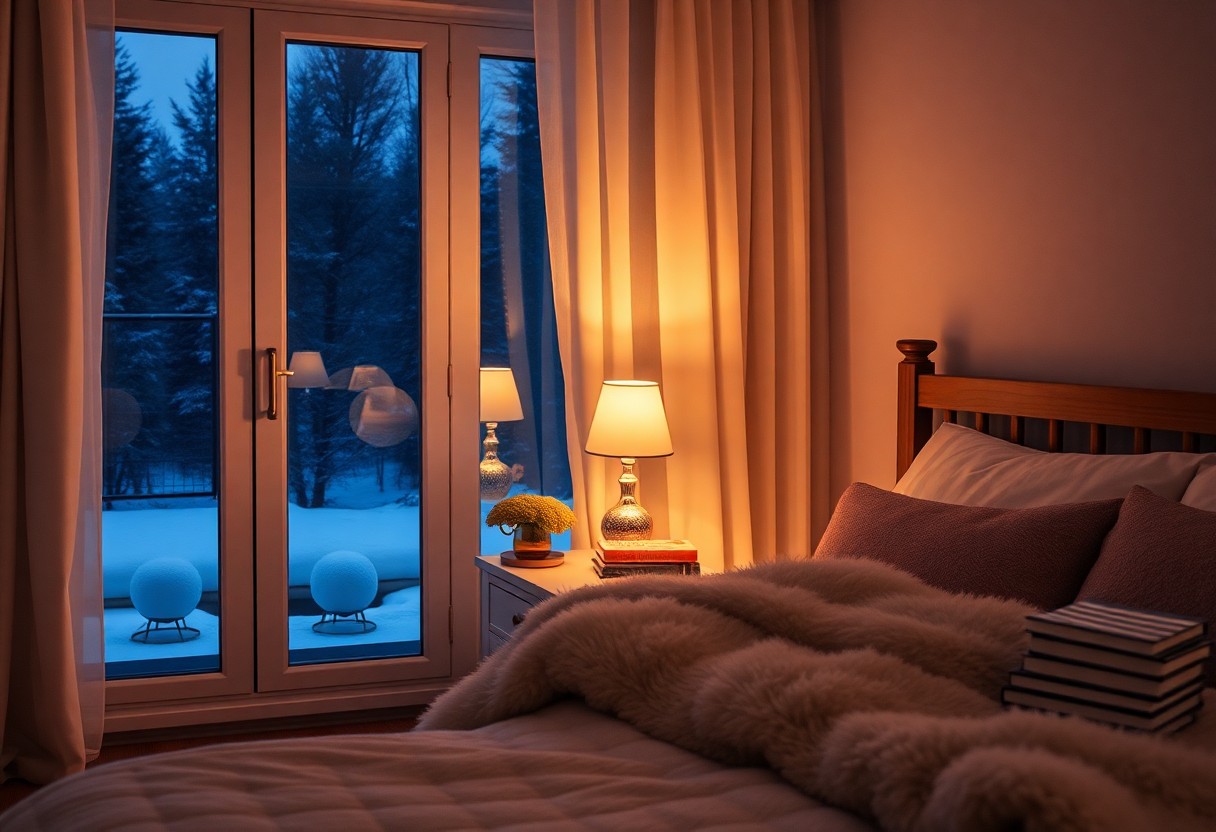During the long, dark winters in the UK, achieving a restful night’s sleep can feel particularly challenging. With shorter days and extended periods of darkness, it’s important to adopt strategies that help enhance your sleep quality. Here are ten effective tips to help you drift off peacefully, even when the winter nights are cold and dreary.
1. Maintain a Consistent Sleep Schedule
Going to bed and waking up at the same time every day, even on weekends, regulates your body’s internal clock. By sticking to a consistent sleep schedule, you can improve your ability to fall asleep and wake up refreshed.
2. Create a Cozy Sleep Environment
Your bedroom should be a haven for rest. Invest in blackout curtains to block out any remaining light from the winter days. Keep the room at a cooler temperature, ideally between 16-18°C (60-65°F), and ensure your bedding is both comfy and inviting.
3. Limit Exposure to Screens Before Bed
The blue light emitted by phones, computers, and tablets can interfere with melatonin production, the hormone responsible for sleep. Set a time limit for electronic device use in the evening and engage in other relaxing activities such as reading a book or listening to soothing music.
4. Consider Light Therapy
Since winter days are shorter, consider using a light therapy box upon waking. It mimics natural sunlight and can help manage your body’s sleep-wake cycle. A light exposure of about 20-30 minutes can be beneficial in the winter months.
5. Watch Your Diet and Caffeine Intake
Being mindful of what you consume, especially in the hours leading up to bedtime, can significantly impact your sleep. Avoid heavy meals and limit your intake of caffeine and alcohol, which can disrupt your sleep patterns.
6. Incorporate Relaxation Techniques
Practising relaxation techniques such as deep breathing, meditation, or gentle yoga can help calm your mind and prepare your body for sleep. Consider setting aside a few minutes each evening to unwind and practice these techniques.
7. Stay Active During the Day
Regular physical activity can help you fall asleep faster and enjoy deeper sleep. Aim to exercise for at least 30 minutes a day, ideally in the morning or early afternoon, to reap the benefits. However, avoid intense workouts close to bedtime.
8. Limit Naps
If you take naps, limiting them to 30 minutes and avoiding late afternoon naps can enhance your long-night sleep quality. Napping too much can make it harder to fall asleep at night.
9. Use Aromatherapy
Essential oils such as lavender and chamomile have relaxing properties that may help improve your sleep. Consider using a diffuser in your bedroom or applying diluted oils to your skin before bedtime for calming effects.
10. Seek Professional Help if Necessary
If you find that poor sleep continues to impact your daily life, it may be time to consult a healthcare professional. Sleep disorders, such as insomnia or sleep apnea, can significantly affect your overall well-being, and getting the right guidance can be valuable.
By implementing these tips, you can work towards achieving more consistent and restful sleep throughout the UK’s dark winters. Your body and mind will thank you for it.
